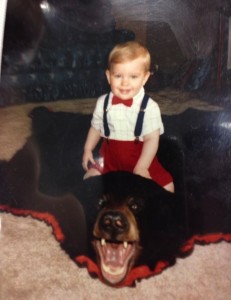What if finding a sponsor was the like the process of dating? Specifically, online dating?
It’s getting more and more common for couples to meet on sites like Match.com, eHarmony and – be still my heart – FarmersOnly.com. So online dating, and how it works, shouldn’t be a foreign concept.
When you think about online dating, the first, and most daunting, part of the process that you’ll have to address is creating a profile. Or, rather, the right profile – the one that says every bit of what you want it to say, and none of what you don’t.
You want the profile that gives them some details – successful career, great social life– but still leaves some mystery. You went to a good school and your hobbies include woodworking (he’s good with his hands!). You want the photo that says ‘I’m smart’ (glasses) but still sexy (two layers of eye liner). I’m young (purple hair feather!) but I know what I’m doing if you know what I mean (leopard print scarf). I’m in shape! (No full body shot.)
See, there are lots of variables.
And that seems like the hardest part of finding a lovah: You imagine the perfect lovah and then you imagine what they want in a lovah and then you craft a profile that matches it.
But love, angel friends, is a two-way street. At least it is if you want to keep it legal.
At some point, you’re going to have to actually talk to this person if you want to date them. You’ll have to meet up for an awkward coffee shop conversation or glass of wine on a bearskin rug, preferably. (I just like picturing bearskin rugs. Probably because of this photo ->) 
And if your profile doesn’t match you, some doubt will start creeping into the other person’s mind.
Friendships, romantic relationships and business relationships are all predicated on an intimate level of trust. When that trust gets broken, even it it’s just a small discrepancy in your mind, it becomes harder for them to give you their trust. And their money. And their pants. Because that’s kind of a form of currency, right?
The problem is that, unlike most people’s recognized need for romance, people don’t need to sponsor racecars. Or at least they don’t think they do.
That, combined with the many other aggressive fish in the sponsorship sea, makes it very easy for potential sponsors to jump to another team or out of the sport entirely when they stop trusting you.
Add to that the existing negative connotations that many companies have about motorsports sponsorship, and you’re balancing on a thin, icy rope.
You are courting your sponsors, and if you think otherwise you’re either as in demand as Jimmie Johnson or delusional. Flashing them a standard, canned sponsorship proposal that you updated with your own information is like re-using a popular dating profile.
It might get them to look into you further, and you might be hoping that it gets you a meeting so that you can win them over with your good looks and pet koala bear, but unless everything out there that represents you matches up (think: website, social media, press releases, newspaper interviews), you’ll never get that meeting.
Because it reeks of insincerity.
I’m not saying all sponsorship templates are bad. In fact, a few of them are good. And it does help to have an idea of what you need to say in a sponsorship proposal.
But, by and large, sponsorship proposals are crutches that confine you to what someone else thought a potential sponsor wanted to read. Unless you’re pitching the same sponsor with the same assets, it’s just not going to match up strategically or philosophically.
And at the point, even your koala bear won’t save you.
Do you use a template, self-made or otherwise? Have any great ones you can point us to? Or do you do every pitch from scratch like me? Would love to hear in the comments section below.
xo.
Kristin
P.S. Want to take it a step further? We’ve created a workshop just for this: Creating Effective Sponsorship Proposals.

